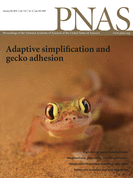
Two papers by an overlapping group of researchers in Italy have been retracted for manipulated figures.
In late 2013, perennial tipster Clare Francis sent their concerns about several papers, including the two that have been retracted, by authors who frequently publish together. One of the papers, in the Journal of Neurochemistry, is from a team led by Ferdinando Nicoletti; four other papers from the group have been criticized on PubPeer for image manipulation, which he addressed via email with us.
The second retracted paper, from the Journal of Immunology, has shares one author with the first: Patrizia Di Iorio of the University of Chieti, though according to Nicoletti she had no role in preparing the figures.
Here’s the April 2014 notice for “Neuroprotection mediated by glial group-II metabotropic glutamate receptors requires the activation of the MAP kinase and the phosphatidylinositol-3-kinase pathways” in the Journal of Neurochemistry. It’s behind a paywall, but the journal has assured us this is against policy and they will be fixing it shortly:
Continue reading Cut and paste and a PC crash: figure manipulations sink two papers
 A group of scientists at the Chinese Earthquake Administration in Beijing have lost their 2014 paper in Nature Scientific Reports for lifting chunks of text from a previously published article.
A group of scientists at the Chinese Earthquake Administration in Beijing have lost their 2014 paper in Nature Scientific Reports for lifting chunks of text from a previously published article.







